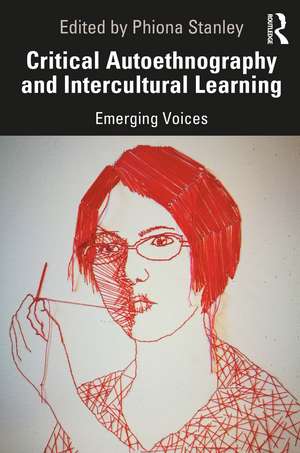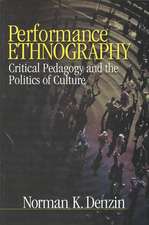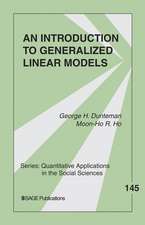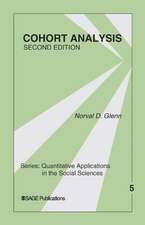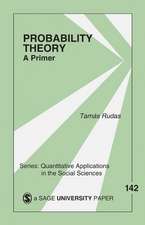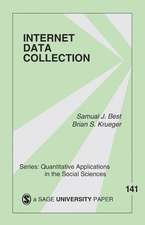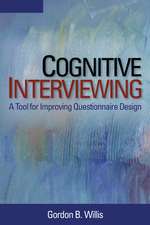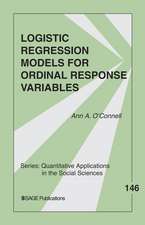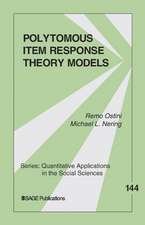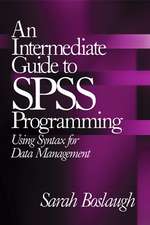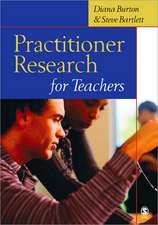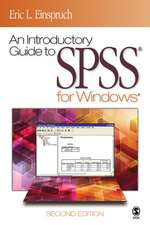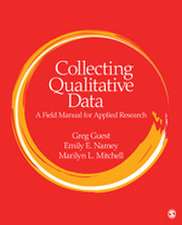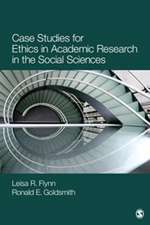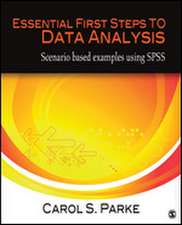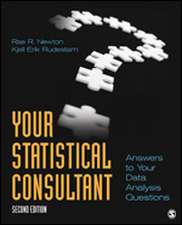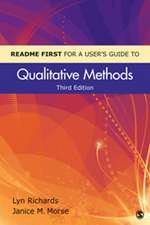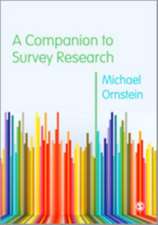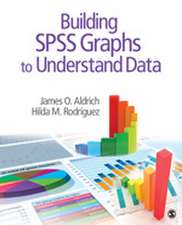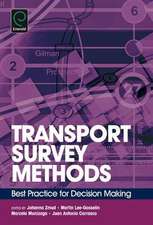Critical Autoethnography and Intercultural Learning: Emerging Voices
Editat de Phiona Stanleyen Limba Engleză Paperback – 6 mai 2020
Different areas of intercultural learning are considered, including language education; student and teacher mobilities; Indigenous education; backpacker tourism; and religious learning. The book provides a worked example of how critical autoethnography can help shift thinking within any discipline, and reflects critically upon the multidimensional nature of migrant teacher and learner identities.
This book will be essential reading for upper-level students of qualitative research methods, and on international education courses, including language education.
| Toate formatele și edițiile | Preț | Express |
|---|---|---|
| Paperback (1) | 389.38 lei 6-8 săpt. | |
| Taylor & Francis – 6 mai 2020 | 389.38 lei 6-8 săpt. | |
| Hardback (1) | 999.51 lei 6-8 săpt. | |
| Taylor & Francis – 6 mai 2020 | 999.51 lei 6-8 săpt. |
Preț: 389.38 lei
Nou
Puncte Express: 584
Preț estimativ în valută:
74.53€ • 80.98$ • 62.65£
74.53€ • 80.98$ • 62.65£
Carte tipărită la comandă
Livrare economică 21 aprilie-05 mai
Preluare comenzi: 021 569.72.76
Specificații
ISBN-13: 9780367234768
ISBN-10: 0367234769
Pagini: 204
Ilustrații: 10
Dimensiuni: 156 x 234 x 13 mm
Greutate: 0.45 kg
Ediția:1
Editura: Taylor & Francis
Colecția Routledge
Locul publicării:Oxford, United Kingdom
ISBN-10: 0367234769
Pagini: 204
Ilustrații: 10
Dimensiuni: 156 x 234 x 13 mm
Greutate: 0.45 kg
Ediția:1
Editura: Taylor & Francis
Colecția Routledge
Locul publicării:Oxford, United Kingdom
Public țintă
Postgraduate, Professional, and UndergraduateCuprins
Acknowledgement
INTRODUCTION
1. The Journey
Phiona Stanley
PART I: ENGAGING WITH THE WESTERN ‘ACADEMY’
2. Epistemological Violence and Indigenous Autoethnographies
Michelle Bishop
3. Yarning through the Intricacies, Tensions, and Potentialities of (Indigenous) Autoethnography
Michelle Bishop and Dakota Jericho Smith
4. Alone but not Lonely
Isma Eriyanti
5. Double Precariat: A Migrant Placeholder in a Neoliberal University
Madhavi (Maddy) Manchi
6. Writing Double Precarity: Recalling and Re-Presenting Autoethnographies
Madhavi (Maddy) Manchi and Elham Zakeri
PART II: LINGUA-CULTURAL LEARNING
7. Escaping the Comfort Zone: The First Language ‘Bubble’
Anqi Li
8. "Where Are You Really From?"
Hyejeong Ahn
9. Autoethnographic Perspectives on First Language Use in Second Language Learning.
Davina Delesclefs
10. Insecurities, Imposter Syndrome, and Native-Speakeritis
Hyejeong Ahn and Davina Delesclefs
11. Beginning and Becoming: Expectations of the Teaching Body in English Language Teaching
Alana Bryant
12. Running Away from ‘Chineseness’ at an Australian University
Jinyang Zhan
PART III: INTERCULTURAL LEARNING IN THE WORLD
13. The Farm
Tara McGuiness
14. But you’re Not Religious — You're Not Going to Convert, Are You? — Come Pray with Us!
Martha Gibson
15. Living in Flux
Matthew Crompton
16. Imaginaries: Turkey, Australia, the World!
Elham Zakeri
17. De-Chinese and Re-Chinese: Negotiating Identity
Ying (Ingrid) Wang
18. "Which Side Are You On?" Between Two Cultures
Gesthimani Moysidou
CONCLUSION
19. Learning, Critiquing, Emerging
Phiona Stanley, Michelle Bishop, Maddy Manchi, Davina Delesclefs, Elham Zakeri & Alana Bryant
INTRODUCTION
1. The Journey
Phiona Stanley
PART I: ENGAGING WITH THE WESTERN ‘ACADEMY’
2. Epistemological Violence and Indigenous Autoethnographies
Michelle Bishop
3. Yarning through the Intricacies, Tensions, and Potentialities of (Indigenous) Autoethnography
Michelle Bishop and Dakota Jericho Smith
4. Alone but not Lonely
Isma Eriyanti
5. Double Precariat: A Migrant Placeholder in a Neoliberal University
Madhavi (Maddy) Manchi
6. Writing Double Precarity: Recalling and Re-Presenting Autoethnographies
Madhavi (Maddy) Manchi and Elham Zakeri
PART II: LINGUA-CULTURAL LEARNING
7. Escaping the Comfort Zone: The First Language ‘Bubble’
Anqi Li
8. "Where Are You Really From?"
Hyejeong Ahn
9. Autoethnographic Perspectives on First Language Use in Second Language Learning.
Davina Delesclefs
10. Insecurities, Imposter Syndrome, and Native-Speakeritis
Hyejeong Ahn and Davina Delesclefs
11. Beginning and Becoming: Expectations of the Teaching Body in English Language Teaching
Alana Bryant
12. Running Away from ‘Chineseness’ at an Australian University
Jinyang Zhan
PART III: INTERCULTURAL LEARNING IN THE WORLD
13. The Farm
Tara McGuiness
14. But you’re Not Religious — You're Not Going to Convert, Are You? — Come Pray with Us!
Martha Gibson
15. Living in Flux
Matthew Crompton
16. Imaginaries: Turkey, Australia, the World!
Elham Zakeri
17. De-Chinese and Re-Chinese: Negotiating Identity
Ying (Ingrid) Wang
18. "Which Side Are You On?" Between Two Cultures
Gesthimani Moysidou
CONCLUSION
19. Learning, Critiquing, Emerging
Phiona Stanley, Michelle Bishop, Maddy Manchi, Davina Delesclefs, Elham Zakeri & Alana Bryant
Notă biografică
Phiona Stanley is Associate Professor of Intercultural Communications (Tourism and Languages) at Edinburgh Napier University, Scotland. Previously, she was Senior Lecturer in Education at UNSW Sydney, Australia. Her research—which is qualitative and mostly auto/ethnographic— focuses on intercultural interactions in a range of settings, including education and backpacker/volunteer tourism.
Descriere
Qualitative Research and Intercultural Learning shows how critical autoethnographic writing in a field such as intercultural education can help inform and change existing research paradigms.
